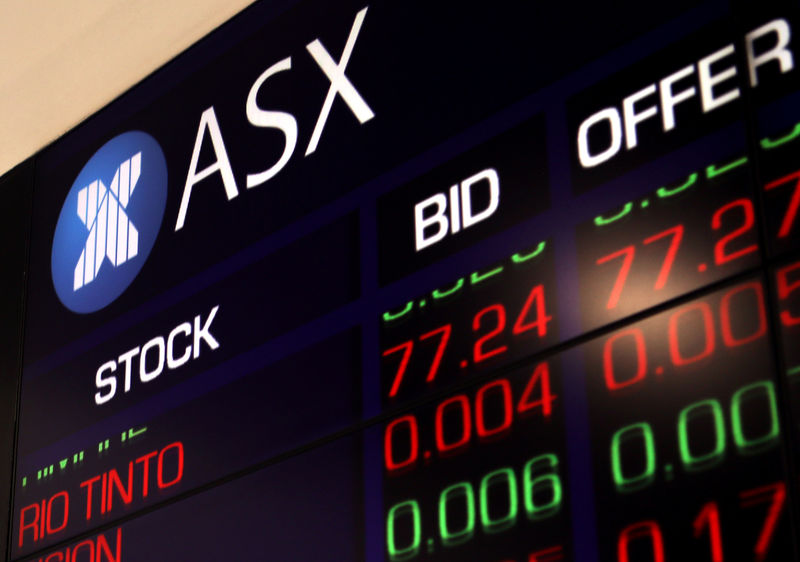By Ambar Warrick
Investing.com-- Most Asian stock markets extended gains on Wednesday amid growing expectations of a less hawkish Federal Reserve, while Australian stocks lagged as inflation reached a 32-year high, pointing to more economic ructions.
Hong Kong and Chinese stocks were the best performers for the day, as they recovered further from a sharp selloff earlier this week. Hong Kong’s Hang Seng index jumped 2% from a 13-year low, while China’s blue-chip Shanghai Shenzhen CSI 300 index added 1.4%.
But both indexes were trading substantially lower for the week, amid concerns over China’s political climate and slowing economic growth.
Broader Asian markets rose, shrugging off a weak lead-in from Wall Street. Japan’s Nikkei 225 index added 0.8%, while Malaysian stocks led gains in Southeast Asia with a 0.5% rise.
Sentiment towards risk-driven markets improved amid growing expectations that damage to the U.S. economy could push the Federal Reserve into softening its hawkish stance.
Markets are still unanimously pricing in a 75 basis point hike in November. But bets that the central bank will enact a smaller rate hike in December are growing.
A raft of weak U.S. economic data this week also fueled speculation over a potential pivot. Focus now turns to third-quarter U.S. GDP data, due later this week, for more cues on the world’s largest economy.
A series of sharp interest rate hikes by the Federal Reserve weighed heavily on Asian stocks this year, as rising yields and limited liquidity hurt sentiment towards risk-driven assets.
This trend is likely expected to continue in the near-term, given that even if the Fed softens its hawkish stance, interest rates are already at their highest level since the 2008 financial crisis.
Australian stocks lagged their peers on Wednesday, with the S&P/ASX 200 index rising only 0.2%.
Data showed that Australian CPI inflation hit a 32-year high in the quarter to September, putting more pressure on the Reserve Bank of Australia to hike interest rates.
Shares of Coles Group (ASX:COL), the second-largest supermarket chain in the country, fell nearly 3% after it flagged rising cost pressures due to elevated inflation and adverse weather.
